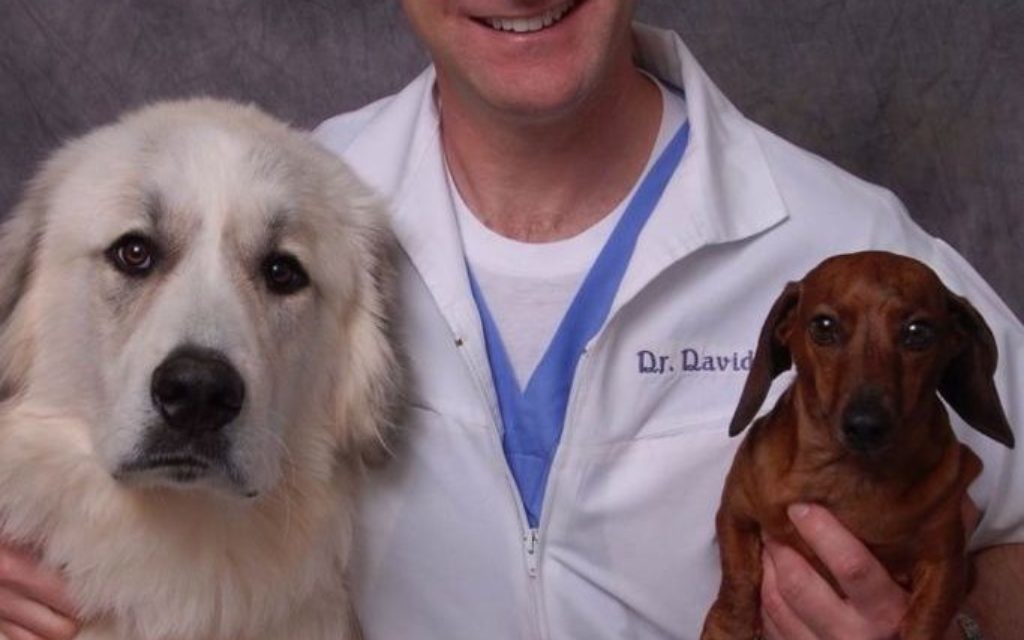Surgical Practice Sews Compassion Into Tech
As a veterinary surgeon, David Filer isn’t the doctor you take Fido or Scruffy to see for a rabies booster shot or an annual checkup.
If you’re a lucky pet owner, you’ll never meet David Filer professionally.
As a veterinary surgeon, Filer isn’t the doctor you take Fido or Scruffy to see for a rabies booster shot, flea and tick prevention, and an annual checkup. One of four surgeons at Veterinary Referral Surgical Practice, with offices in Marietta, Roswell and Woodstock, he’s the doctor your regular veterinarian refers you to when your pet has a problem he can’t treat.
Sometimes the veterinary general practitioner lacks the expertise or the equipment to diagnose the problem. For example, a dog could limp because of an orthopedic injury or a neurological problem or some combination. Filer’s practice can perform digital radiology, CT scans and MRI tests on animals and has one of only 250 or so U.S. veterinary neurologists on staff.
Get The AJT Newsletter by email and never miss our top stories Free Sign Up
Sometimes the regular vet can diagnose the problem but doesn’t have the specialized skills to provide the treatment and the rehabilitation after surgery. VRSP surgeons go through four years of training after four years of veterinary school to take the exam to be surgical specialists, and its rehab tools include acupuncture and an underwater treadmill.
“We are absolutely adamant about working very closely with the general practitioner because we really want to have the right hand knowing what the left hand is doing and having coordinated care,” Filer said. “That’s one reason why we’re a referral-based practice: We want to have the background, we need to have, that very important part of the puzzle of the background of the pet, what’s been done for him up to this point.”
What can be done for pets to extend their lives has continued to advance during Filer’s 30 years as a vet, from surgical techniques such as arthroscopic knee operations to diagnostic procedures such as MRI and CT scans — “yes, CAT scans even for dogs,” he said.
Procedures often are tested in animals, then become common in humans, then are expanded back to pets, Filer said. One of the latest examples is platelet-rich plasma, which is injected into soft tissue such as a damaged tendon to spur healing.
Some cases VSRP treats are memorable because of the pets and their needs. For example, the practice’s neurologist recently removed a brain tumor from a dog, and Filer has helped return dogs to walking by operating on their slipped discs.
Other times, the pet owner makes a case memorable, as when service dogs with injured cruciate ligaments in their knees get surgical repairs, enabling them to do their jobs helping owners with disabilities.
Filer was in his third year of veterinary school at Auburn University when he started surgical training and quickly realized that surgery was “really custom-made for me. This is really a great fit.”
After getting his veterinary degree 30 years ago, then completing an internship and a surgical residency earning a master’s, he joined VRSP in 1992 and has been there ever since.
“I get tremendous gratification in seeing something that is broken, damaged or diseased and figuring out what is the best course of action to help that patient within the confines of what we can do to help the owner and putting that puzzle together,” Filer said.
The puzzle pieces can be dramatically different between patients, from a chihuahua weighing a couple of pounds to an English mastiff weighing 250 pounds. Regardless of the size, dogs are living longer now because of better care, better diets, and better living conditions, from living outside decades ago (putting them at risk of being hit by cars or contracting heartworm) to living inside to often living in beds with their humans.
Those improved conditions and longer lives can make decisions about expensive veterinary care even tougher for families.
Filer said helping pet owners through those decisions is one of the most important parts of the practice. The surgeons try to present options based on what can extend or improve a pet’s life and what the family can afford, including financing options.
“I think the thing that sets us apart from other groups that do what we do is we are very focused on personalized, compassionate care,” Filer said. “Each patient comes with an owner, and to be able to provide compassionate, personalized care is of utmost in our practice.”






comments